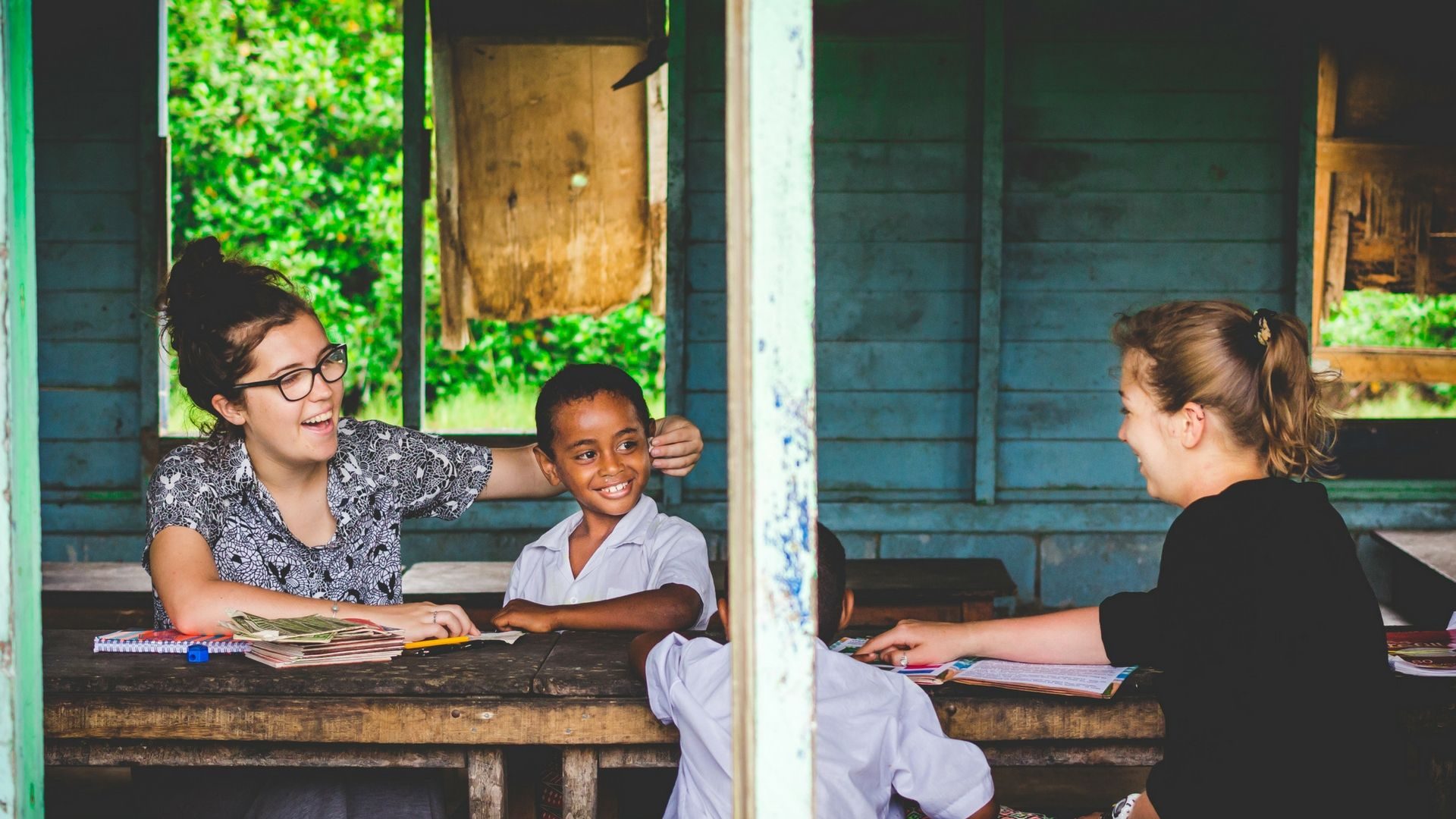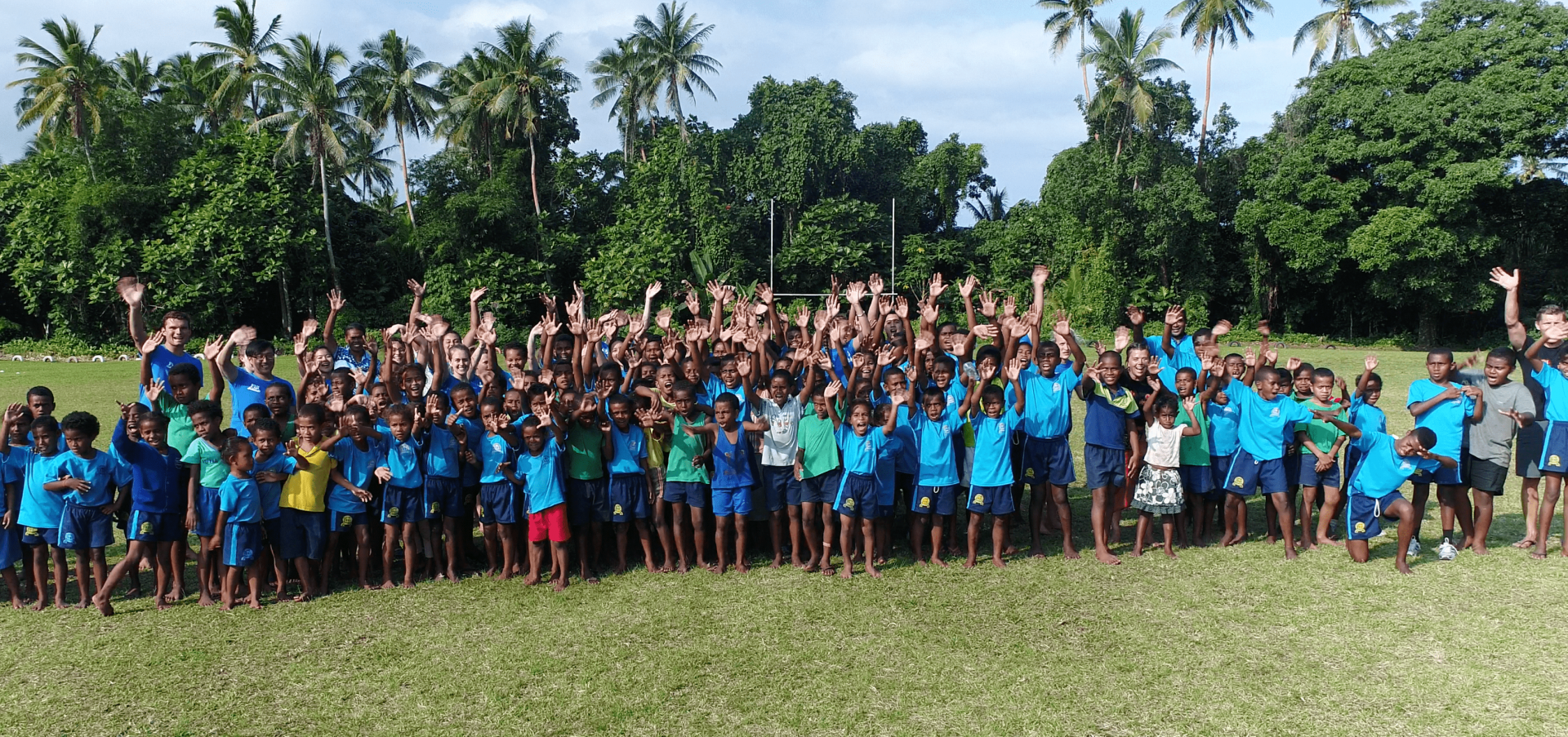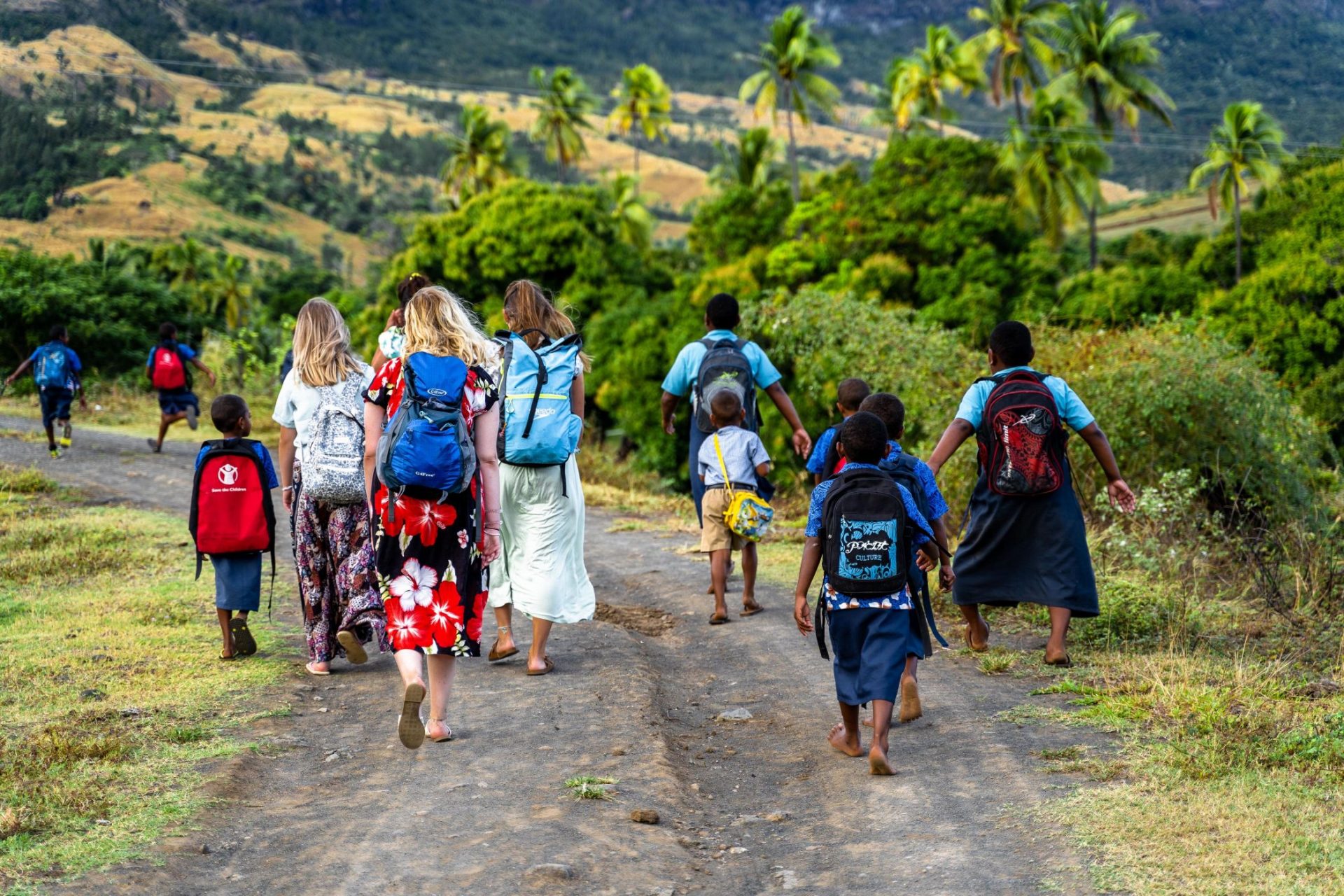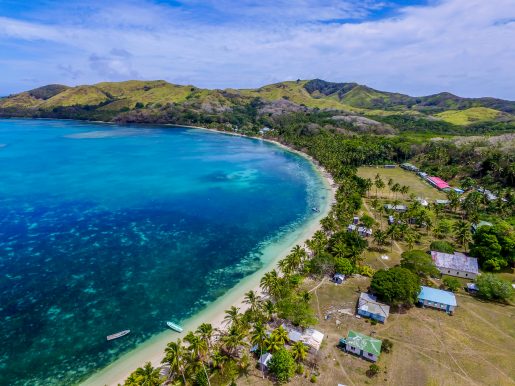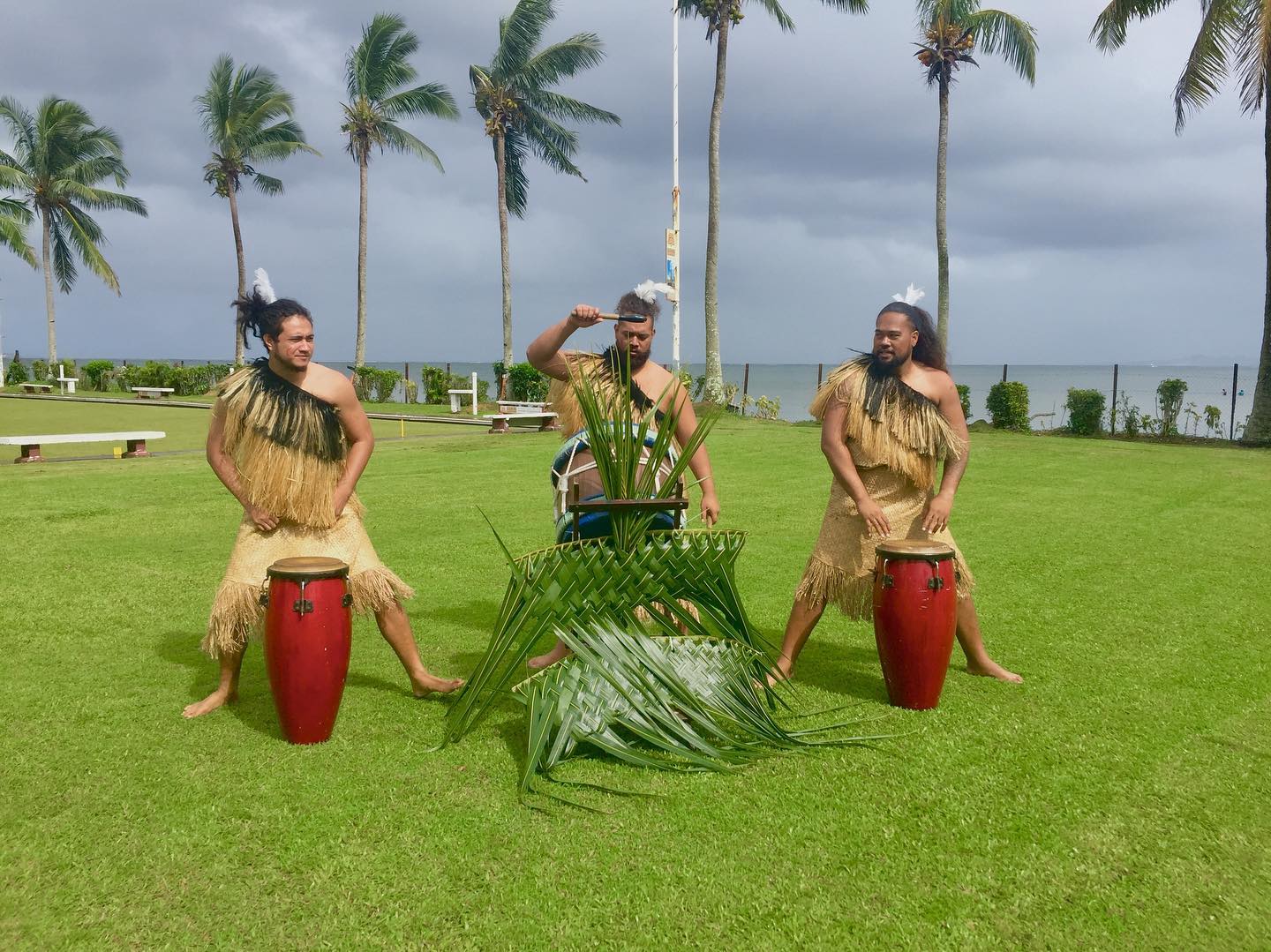Global Education
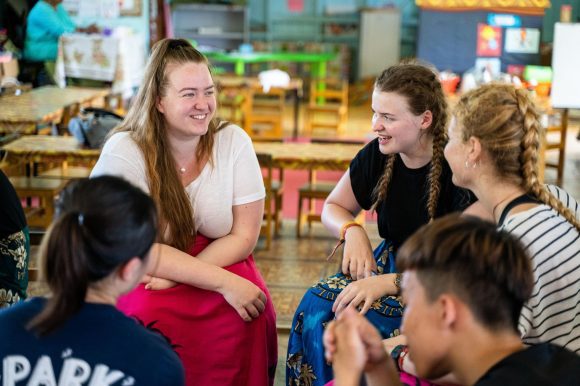
- Module 1 – An Introduction to Educational Development in Fiji
- Relevant SDGs, FNDP and SDG Review
- Module 2 – Government & Non Govt Organisations supporting Education in Fiji
- Govt & NGO/Charity
- Module 3 – The Fijian Education System
- Early Years Education to Higher Education
- Module 4 – Barriers and Challenges Towards Quality Education in Fiji
- Challenges Breakdown
- Module 5 – Moving Forward for Quality Education and Lifelong Learning
- International Development & Technology & Employment Skills Training (TEST)
Module 1: An Introduction to Educational Development in Fiji

UNESCO believes that education is a human right for all throughout life. They highlight the importance of education and believe it plays an integral part in eradicating poverty, establishing peace and driving sustainable development. Education is a fundamental right and provides the foundation for members of society to be rational and recognise other rights. It is through education, that a nation has the ability to achieve growth, development and prosperity. The Fiji Ministry of Education, Heritage and Arts is the main facilitator within the achievement of the National Development Plan Education priorities. The FNDP states that quality education for all is essential to create a more skilled and adaptable workforce and create a knowledge-based society. The Constitution guarantees the right of every child to early-childhood, primary, secondary and further education.

Fiji provides education through grade school in most communities, including rural and isolated communities, and through high school in most urban centres. Beginning in 2013, school fees are now paid by the government, thus removing the economic strain felt by many families in having to pay school fees for multiple children, which in the past caused many children to miss entire years of school. The FNDP states how universal access to primary education has been achieved, and net secondary school enrolment is over 80 percent. The free-education initiative also includes free bus fares and free textbooks, which has also positively contributed to the significant increase in enrolment numbers. Nevertheless, parents and caregivers still have to pay for uniforms and school supplies, including book fees, which remains onerous for many families.
The UN SDG4 is to ensure inclusive and equitable quality education and promote lifelong learning opportunities for all
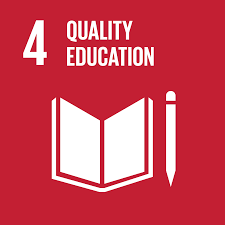
The United Nations Development Programme note the SDG’s aim are to ensure that all children complete free primary and secondary schooling by 2030. Introducing inclusive and quality education for all demonstrates the belief that education is a proven vehicle for sustainable development and essential to achieving many other SDGs.
Despite years of steady growth in enrolment rates, 262 million children and adolescents remain out of school worldwide.
- 57 million primary-aged children remain out of school
- In developing countries, one in four girls is not in school.
- 103 million youth worldwide lack basic literacy skills, and more than 60 percent of them are women.
- 6 out of 10 children and adolescents are not achieving a minimum level of proficiency in reading and math.
Some of the UN SDG4 Targets are:
4.1 By 2030, ensure that all girls and boys complete free, equitable and quality primary and secondary education leading to relevant and effective learning outcomes.
4.2 By 2030, ensure that all girls and boys have access to quality early childhood development, care and pre-primary education so that they are ready for primary education.
4.3 By 2030, ensure equal access for all women and men to affordable and quality technical, vocational and tertiary education, including university
4.B By 2020, expand higher education scholarship for developing countries
4.6 Universal Literacy and Numeracy
4.7 Education for sustainable development and global citizenship
For further information on the Goals – https://sustainabledevelopment.un.org/sdg4
The Fiji National Development Plan was launched by the Fiji Government in November 2017 with the vision of ‘Transforming Fiji’, and provided a framework for ‘all Fijians to realise our full potential as a nation’.
The government aims to provide “quality education for all”.
- Education is essential to create a skilled and adaptable workforce.
- The Constitution guarantees the right of every child to early-childhood, primary, secondary and further education.
Early childhood education (ECE)
- To achieve universal access an ECE centre will be attached to each primary school.
Primary and Secondary education
- Universal access to primary education has been achieved and net enrollment in secondary education stands at 80%.
- The free-education intitiative, free bus fares and free textbooks have helped to increase levels of enrollment.
- Continuous hiring of teachers is helping to improve the student: teacher ratio.
- The government will support the upgrading of educational facilities.
University and colleges
- Grant funding has helped improve education infrastructure and the quality of teaching and learning.
- Scholarships and the loan scheme have increased access and affordability.
- There has been increased investment in vocational skills and technical colleges have been established.
Curriculum
- The curriculum is continually reviewed and is used to corporate contemporary areas such as:
- Gender
- Nutrition
- Respectful relationships
- Environment
- Alcohol and drugs
- It is hoped that these areas will help to overcome some of society’s issues such as NCDs, drug misuse and teenage pregnancy.
- A digital literacy programme has been introduced.
- Education for those with special needs is supported through grants to special needs schools.
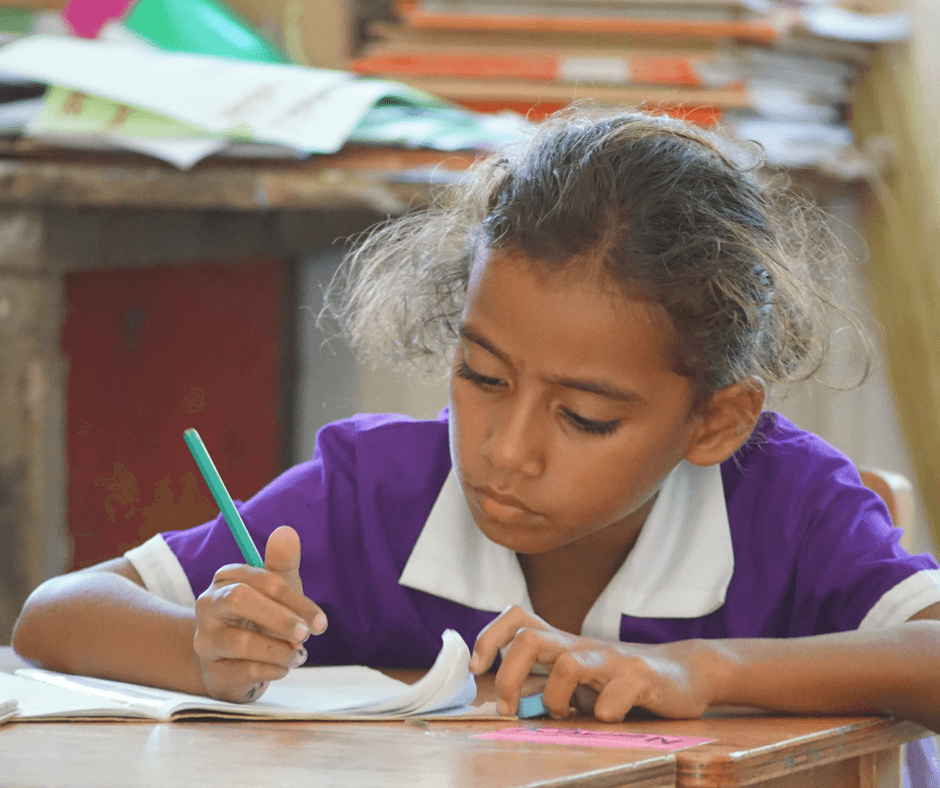

The government aims to “empower youth to be agents of change and promote sports for development”.
Youth Development
- 62% of Fiji’s population is below the age of 35, providing great opportunities to stimulate growth and development.
- The government will ensure that educational, employment and leadership opportunities are provided for the Fijian youth.
- In the next 5 years there will be more initiatives, in part through financial support for voluntary organizations, promoting:
- Entrepreneurship
- Leadership
- Climate change
- Sexual health awareness
- Youths will be encouraged to participate in policy development through the International Youth Exchange Programme, National Youth Conference and Youth Parliament.

- Fiji realised universal primary education (Millennium Development Goal 2) by 2013 and therefore Fiji has a high literacy rate.
- Universal access to education will be maintained helping to increase the supply of well-trained professionals that are equipped for the global job market.
- There will be investments in existing and new educational facilities and teacher-student ratios will be improved.
- Initiatives such as travel subsidies and free textbooks ensure that no one is deprived of an education on the basis of cost.
- There is a particular focus on improving Early Childhood Education (ECE).
- Tertiary education will also be improved with a focus on the demands of the labour market.
- Educational policies are particularly important with 62% of the population below the age of 34, providing a unique opportunity to build a highly-skilled workforce.
- In recent years, more money has been channelled toward education and other social services to raise the living standards of all Fijians.
- The focus on education will send positive ripples throughout the economy.
Fiji views access to education as the most effective way of empowering ordinary citizens in improving their quality of life. This is in line with transitioning Fiji to become a more equal, knowledge-based society, where the only determinants of success are merit and achievement. In recent years, there have been especially momentous gains for women and girls.
Early Childhood Education
In 2007 the Early Childhood Care and Education (ECCE) policy was introduced with the aim of achieving universal access to early childhood education.
There has been a seven-fold increase in the completion of pre-school education and net enrolment has increased from 11.8% in 2000 to 80% in 2015.
The aim is to maintain a student-teacher ratio of 1:24 in ECCE institutions.
A number of grants have made these improvements possible.
Primary and Secondary Education
Universal access to primary and secondary education has been achieved. Enrolment in primary schools stands at 99% and at secondary schools 90%.
A national campaign to rebuild school facilities damaged by weather events, to cyclone-resilient standards is currently underway.
Fijian Year 5 and Year 7 students achieve reasonably proficient literacy and numeracy achievement.
Summative assessments are used to measure a student’s progress in years 10, 12 and 13.
Tertiary and Technical Education
Tertiary enrolment is at around 30%.
There is an expanding network of tertiary institutions such as the Technical College of Fiji (TCF).
The TCF provides training for key sectors in the Fijian economy, making for a more competitive Fijian workforce and economy and providing choice to progress to universities.
Inclusive Education
Fiji hosts a network of specialty schools that serve the disabled.
There are currently 17 specialised schools and 67 mainstream secondary school serving students with disabilities.
The University of the South Pacific runs a disability research centre that provides services to foster inclusive learning environments.
Partnerships with NGOs help to further this mission.
Gender Disparity
There is a gender gap in Fijian schools with many young girls traditionally going without formal education due to high costs.
Government funding is resulting in more girls being able to go to school.
At a secondary level, female students are better represented than males.
A number of initiatives help to support the educational aspirations of women.
Opportunities
Around 20% of pre-school aged children remain outside of the school system and therefore there is a need to raise awareness among parents of the importance of ECCE.
The government is currently expanding access to ECCE facilities.
In order to achieve full enrolment among young people, Fiji is looking for new ways to engage with students through an expansion of technical and vocational educational offerings which will cater for new and existing segments of the economy.
The educational divide between rural and urban regions is shrinking but the remoteness of rural and maritime communities makes it harder to deliver quality education. The development of telecommunications is helping to overcome these challenges. However, ensuring equal access will require steady investment.
The Fiji Education Management System has the potential to improve the monitoring of education programs, but remains under-utilised in some ways.
The Ministry of Education must undertake constant reviews of the curriculum to improve the competitiveness of Fiji’s future workforce and adapt to new technologies.
Fiji’s schools must also impart morals and inspire national unity among the next generation.
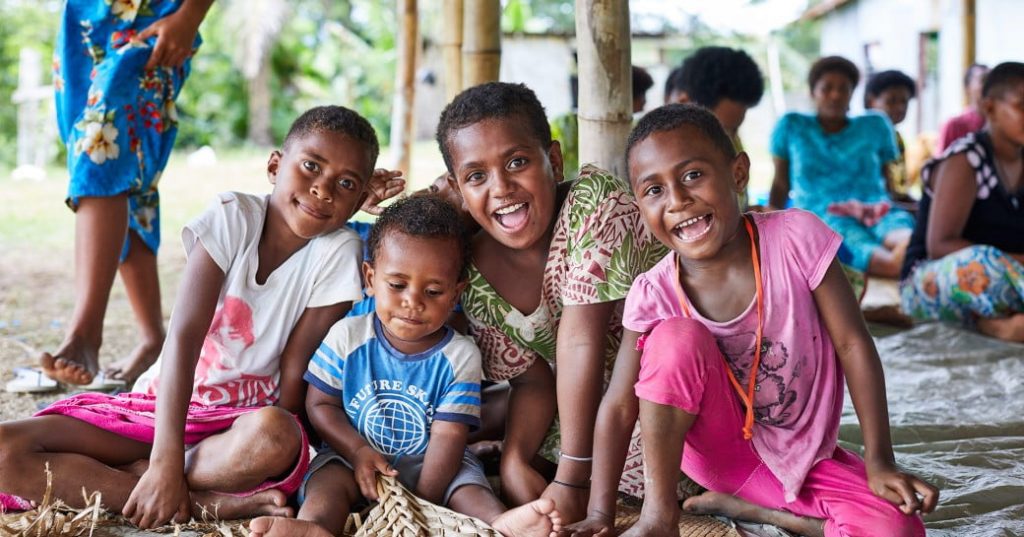
Module 2: Govt & Non Gov Organisations Supporting Education in Fiji
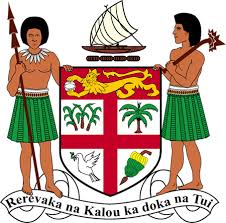
Vision
‘Education and cultural diversity for empowered and sustainable futures for all’,
Mission
‘to prepare all Fijians to contribute to a sustainable and progressive nation through holistic and empowering education that appreciates and embraces the unique values of all its citizens’.
MEHA is responsible for the design, implementation, monitoring and evaluation of educational legislations, policies and programmes in Fiji. They provide the structures, human resources, budget, administrative and management support to ensure that the quality of service delivery is maintained at a high level.
They are specifically tasked to conduct and deliver education services to the following:
- Pre-schools
- Primary and Secondary
- Special Schools for children with special needs and Vocational Schools
- Students in the years of compulsory schooling (Class 1-Form 6) and those participating in Form studies
- Students in vocational education and training programmes
- Teaching personnel
- School management committees and controlling authorities
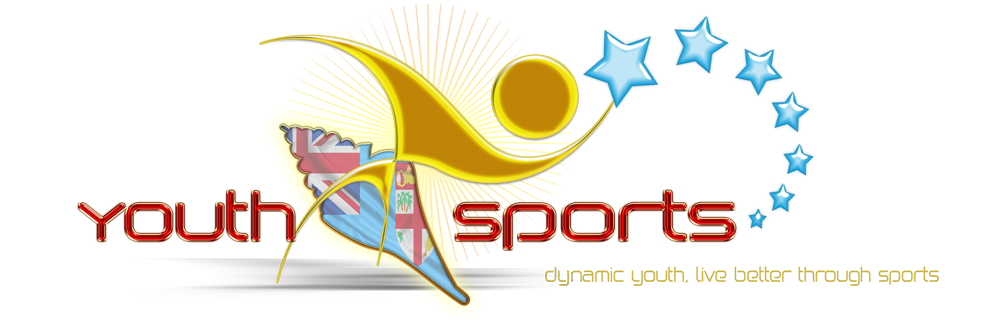
Vision
‘Building healthy and socially engaged youth through non- formal education and a physically active nation through sport’,
Mission
‘promotes values and social cohesion through national sports development and empowering youth through engagement. qualifications, knowledge, skills and resource development contributing to sustainable success for all’.
The Ministry of Youth and Sports’ core responsibilities are focused on facilitating youth and sports development through the establishment of a conducive policy environment that provides strategic support systems, initiatives for personal development, character building, sports policy implementation and community based youth-led programs.
There are two core programmes coordinated and facilitated by the Ministry of Youth and Sports.
Youth Development:
The programme centres on the provision of assistance to youths through advisory, empowerment and capacity building including specific skills training.
Sports Development:
The programme focuses on the development of sports and its infrastructure nationwide through the provision of grants to the Fiji National Sports Commission, National Sporting Organisations and Fiji Sports Council as well as the provision of basic sports equipment and the development of rural playing fields.
Policies:
There are two main policies that guide the work of the Ministry of Youth and Sports.
- National Youth Policy
- National Sports Policy
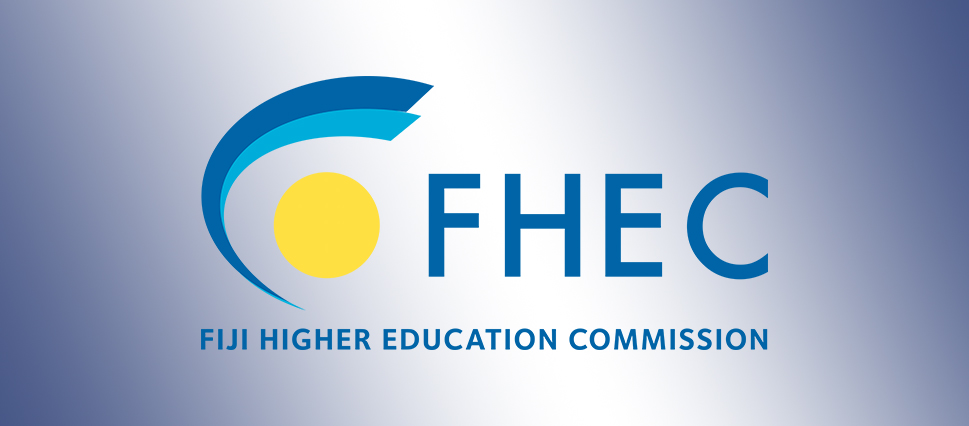
Vision
‘Building together an educated and globally competitive Fiji’
Mission
‘To quality assure the delivery of higher education that meets the needs of our stakeholders’.
FHEC is the government-mandated regulatory and quality assurance body for higher education in the country. The FHEC oversees the development and improvement of higher education in Fiji with the aim of ensuring that learners have the best possible opportunity to gain relevant qualifications required to support and sustain Fiji’s economic and social prosperity.
The FHEC regulates the registration and operation of all higher education (HE) institutions, ensuring they meet quality standards and guidelines that reflect national and international imperatives. It is also responsible for establishing and maintaining the Fiji Qualifications Framework which enables Fiji qualifications to be measured both in Fiji and internationally.
The FHEC was established as a statutory body in 2010 under the Fiji Higher Education Act 2008. Under the Act, Higher Education (HE) refers to all post-secondary school learning opportunities in Fiji.

As well as the United Nations, there are a number of Non-Government Organisations and Charities in Fiji that have supported Education throughout Fiji. However, in 2019 the MEHA released an interim policy to regulate the entry of visitors, volunteers, NGOs and donors into schools.
The Ministry was constantly being inundated with requests to visit the schools, ranging from individuals, volunteering groups and NGOs. Not only that, but some organisations were entering the schools without any permission or any formal agreements with MEHA, it was due to some of these organisations that the ministry soon realised the importance for a volunteer policy. The aim of the policy is to ensure that the schools activities are not being disrupted, protection for the children, teachers and school and protection around any possible areas of liability. Although there are many NGOs and charities that have been involved with supporting education, we have compiled a list below are some of organisations we believe to have positively impacted education and some of whom we have had the pleasure of working alongside.

‘Education transform lives’
UNESCO believes that education is a human right for all throughout life and that access must be matched by quality. The Organisation is the only United Nations agency with a mandate to cover all aspects of education. It has been entrusted to lead the Global Education 2030 Agenda through Sustainable Development Goal 4. The roadmap to achieve this is the Education 2030 Framework for Action (FFA).
UNESCO provides global and regional leadership in education, strengthens education systems worldwide and responds to contemporary global challenges through education with gender equality an underlying principle.
Its work encompasses educational development from pre-school to higher education and beyond.
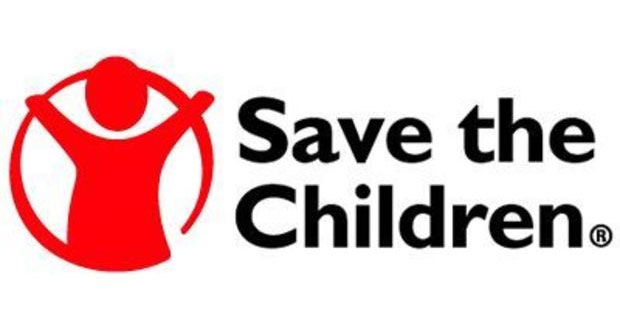
Save the Children Fiji is the country’s peak child rights organisation and they have been helping make meaningful change in the lives of children for more than 40 years.
Since their inception in 1972 they have worked to improve access to education and health programs for some of the country’s most vulnerable and marginalised children and families.
They are a non-political organisation that is dedicated to bettering the lives of children in a sustainable manner in Fiji.
They are dedicated to ensuring children are able to actively engage in their own education. They do this by reducing the barriers that exist from the community level to government policy whilst working to improve parental practices that support a child’s cognitive development and protection.
They currently work directly within 52 informal communities and villages helping children access health and education at home while also driving for change on a national and international agenda.

‘Every child has the right to go to school and learn’.
Education transforms lives and breaks the cycle of poverty that traps so many children.
UNICEF is committed to making sure every child has access to a quality education, no matter who or where they are.
UNICEF Pacific work with governments and partners throughout the region to help make sure education reaches the most vulnerable, that systems work effectively for children, and that no child is left behind.
Across the Pacific, they are working towards:
- Having more young children have access to quality early learning opportunities;
- Building capacities of education stakeholders to identify and respond to learning needs of children not attending school and/or are at risk of dropping out;
- Building capacity of the education system to strengthen resilience and prepare children as well as school communities to respond to emergencies and disasters; and
- Strengthening national level legal systems and policies for delivery of quality and incl
Module 3 - The Fijian Education System
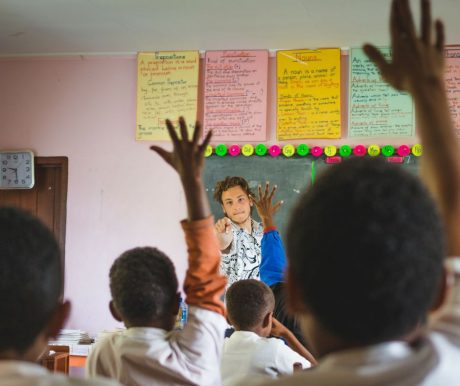
Over the years the Fijian Education Policy has been subject to many changes. Fiji was a colony of Great Britain and was under its rule for just under 100 hundred years. During the colonial period, Fiji adopted the British education system. Fiji gained independence in 1970 and although this brought the opportunity for a Fiji-led curriculum, many of the colonial structures and themes remained in place for many years. Fiji formed the Education Act in 1978 and even to this day, Fijian education is still governed by the 1978 Education Act. The Act is a general education law, which is largely concerned with the management and governance of various levels and aspects of the education system. It is a rather administrative piece of legislation that contains little sense of an educational vision or philosophy. In the early years of independence, an agreement was made to use New Zealand’s curriculum through textbooks and examinations. This arrangement ceased in the 1990s and the first locally developed national curriculum was implemented in Fiji schools.
The 2000 Education Report found that the main challenges included issues of access and equity, the need for curriculum reform, improved teacher supply, the quality of teaching and teachers, and a perceived need for a move towards student-centered pedagogies (Koya, 2015, p.23).
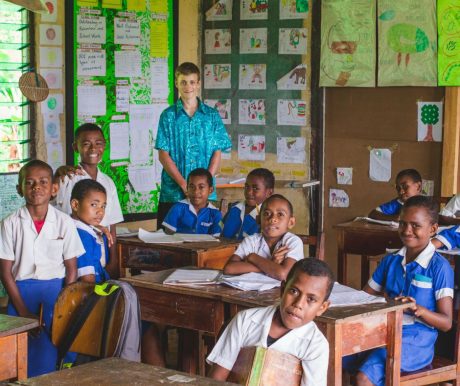
Since 2000 there have been a series of policy initiatives that have responded to concerns that the 1978 Act, and linked practices, are in need of revision. These include the Education Commission Report (Fiji, Ministry of Education, 2000), the Systems-based Curriculum Mapping Exercise (ongoing since 2003) and the Suva Declaration (Fiji, Ministry of Education, 2005). From 2007, these initiatives fed into the attempt to develop a National Curriculum Framework (NCF).
Fast forward to 2013 and the National Curriculum Framework (NCF) was endorsed on the back of a series of policy initiatives being introduced regarding concerns of the 1978 Education Act. The NCF’s vision is ‘To provide a holistic, inclusive, responsive and empowering education system that enables all children to realize their full potential, appreciate fully their inheritance, take pride in their national and cultural identity and contribute fully to sustainable national development’ (Fiji, Ministry of Education, Heritage and Arts, 2013, p. 1).
The NCF still remains the primary guiding framework however, post-2014 there have been many policy initiatives and curriculum reforms.
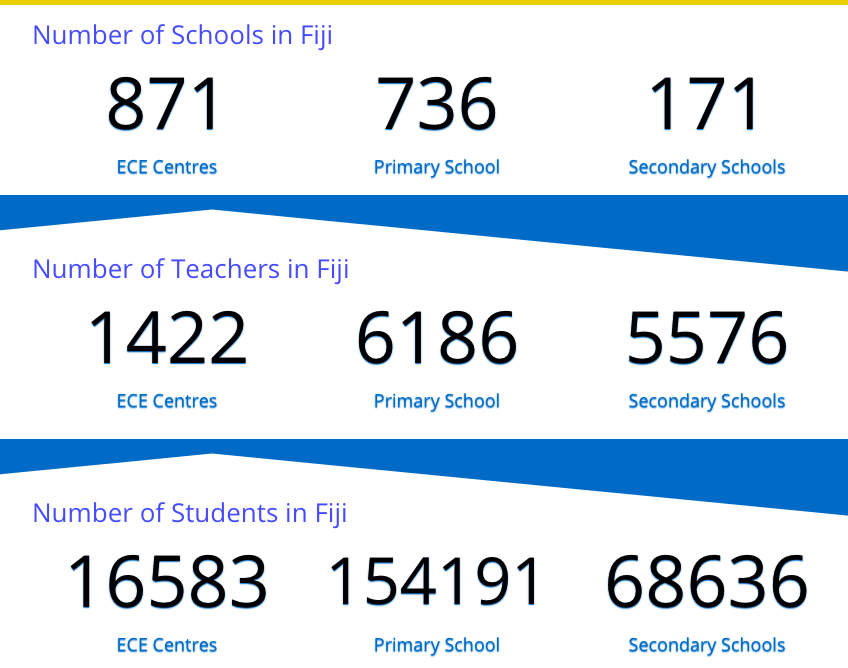
Early Childhood Education
Fiji categorises all forms of education from birth to the age of 8 as a part of Early Childhood Education; this includes education at home, at religious places and pre-schools. A very high proportion of learning takes place at this age and therefore anything taught at this age can help them to reach a more prosperous future. ECE also helps to build links between a child’s home and their school.
The Fijian government believes that the provision of Early Childhood Education plays a very important role in providing high-quality education and therefore in turn developing a knowledge-based workforce.
It is now mandatory in Fiji that all primary schools have an associated ECE centre, these are within the vicinity of the villages to ensure that no child is left behind.
Special & Inclusive Education
In 1967 the first special school, was established by the Fiji Crippled Children’s Society (later renamed Hilton Special School) to provide education for students with severe physical impairment and hearing loss. Over time, more special schools were established around the country and currently there are fifteen special schools and two Vocational Training Centres in Fiji. These special schools are located in the main town areas of the two major island groups. As a result, access to education for children who live in the outer islands and rural communities has been very limited.
The role that Special Schools have played in Fiji has been central to provision of education for children with disabilities. Whilst inclusive education may be an aspiration globally, the journey to ensuring regular schools are completely equipped to fulfill this aspiration can be lengthy. The process of expanding inclusive education across Fiji will rely heavily on the sharing of knowledge and expertise by teachers who have gained experience in the special schools
Primary School Education
Fiji has a high literacy rate (91.6 percent) and, although there is no compulsory education, more than 85 percent of the children between the ages of 6 to 14 attend primary school. Schooling is free and provided by both public and church-run schools. Generally, the Fijian and Hindu children attend separate schools, reflecting the political split that exists in the nation.
The primary school system consists of 8 years of schooling, upon completion of primary school, a certificate is awarded and the student is eligible to take the Secondary School Examination.
Secondary School Education
Entry into the secondary school system, which is a total of five years, is determined by a competitive examination. Students passing the exam then follow a three-year course that leads to the Fiji School Leaving Certificate and the opportunity to attend senior secondary school. At the end of this level, they may take the Form VII examination, which covers four or five subjects. Successful completion of this process gains students access to higher education.
Higher Education
At tertiary level, there are three universities in Fiji:
- Fiji National University is the main public university and comprises the colleges of medicine, business, agriculture, humanities and engineering. It is also home to Fiji’s National Productivity Organization and the Fiji Maritime Academy.
- The University of the South Pacific is a regional Pacific university, with campuses on a number of Pacific islands. Its main campus is in Suva. It is the largest tertiary provider in Fiji and the South Pacific, provides a broad-based program of study at the undergraduate and graduate level, including arts, sciences, and law
- The University of Fiji was set up by a church and is based in the West provides liberal arts schooling environment, including business, law, the arts, and recently a private medical school.
In addition to the university, Fiji also has teacher training colleges, as well as medical, technological, and agricultural schools. Primary school teachers are trained for two years, whereas secondary school teachers train for three years; they then have the option to receive a diploma in education or read for a bachelor’s degree in arts or science and continue for an additional year to earn a postgraduate certificate of education.
Youth and Vocational Education
The Youth Training Centre activities are planned, implemented and overseen through the nation’s four divisions; the Central/Eastern Division, the Western Division and the Northern Division. Established in 1993, this is a second chance program targeted at disadvantaged youths who cannot continue in the formal education system.
Objectives:
- To provide appropriate vocational training to ensure career development and sustainable self-employment for the youths in Fiji.
- To pursue economically viable enterprises.
- To provide character development training as a vehicle to complement up-skilling programmes and ensure a holistic development of youth for improved livelihood.
Module 4: The Barriers and Challenges Influencing Quality Education in Fiji
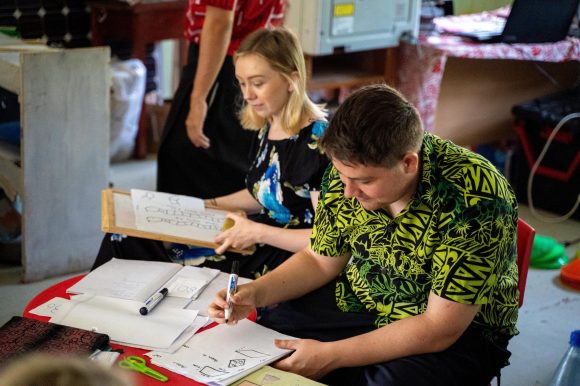
The Introduction of the Fiji National Curriculum Framework (Ministry of Education 2007) and its more recent second edition (MEHA 2013) signified a progressive reform on how Fijian Education was to be considered. The need for change came about as the previous curriculum was seen to be too teacher-centred and exam-orientated. The new framework envisaged a holistic approach, child-centred learning and the teacher being seen as more of a facilitator.
However, these progressive reforms were short-lived, as in 2015 the MEHA re-introduced standardised exams and abolished the student-centred assessment process. These ever-changing reforms are having a negative effect on the system as a whole and restricting Fijian education from its potential.
Although the NCF’s holistic approach and liberal vision still remains the primary guiding framework, the recent conservative and performative reforms have meant the implementation and structure are not aligned with the overall objective and mission.
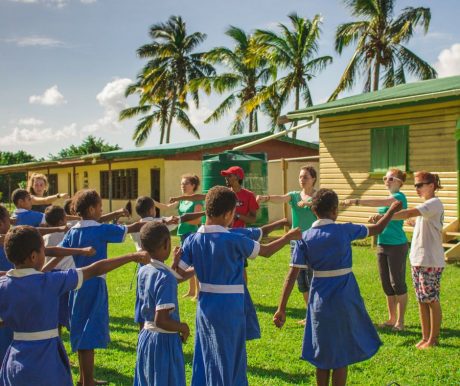
There is a lot of disparity between urban and rural schools across the country. Many of the biggest challenges exist within the rural and remote locations such as: lack of resources, basic or outdated facilities, poor quality textbooks, limited access to technology and lack of support and assistance due to the locality.
Although most schools are operated by non-government organisations, they all follow the ministry’s policies and curricula, while the school management boards are the bodies responsible for the maintenance and development of school facilities (Lingam, 2009). The multiplicity of ownership of schools contributes to major differences in the standards of school facilities and resources and places a huge burden on families of low socio-economic status, especially those living in rural areas and solely reliant on subsistence farming.
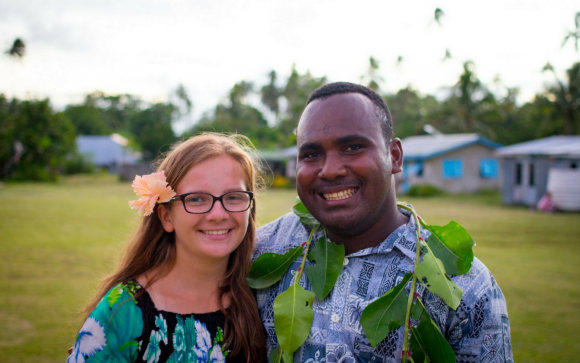
A lot of the Teacher-related challenges filter down from the school barriers, with lack of resource being evident within the human resource department. From our experience of working in many schools across Fiji, the student-teacher ratios are a consistent issue. Many classes are composite meaning the teacher is stretched delivering 2 separate lessons. This common structure provides heavier workloads, increased paperwork and, as well as that, the teachers are also responsible for the extra-curricular activities. Studies found that teachers felt increased stress through increased formal accountability, closer monitoring by the Ministry of Education, limited promotion opportunities and time constraints over delivering an overloaded curriculum into the school year. (Crossley et al, 2017). The same study also found that the majority of teachers believed that ‘they are not well respected in society’ and this decline in societal respect results in a ‘lack of appreciation for them as professionals’.
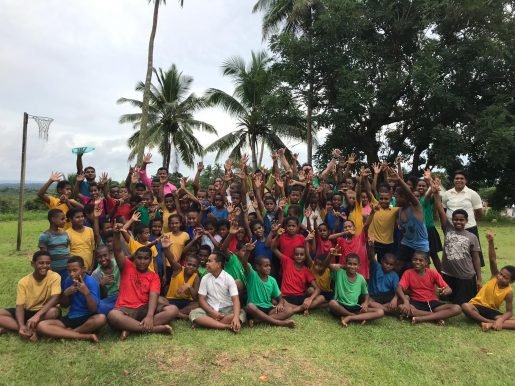
There’s no surprise that all the issues mentioned above have an effect on the student experience. Since 2009 we have supported primary schools across 9 of the 14 provinces and a common theme is the disparity across the students’ learning needs and the difference in ability. Within an overcrowded classroom consisting of composite year groups, the possibility of a student’s individual needs being met is minimal. This causes a negative ripple effect as certain students become disengaged, resulting in a poor attitude towards learning and behaviour. The student then begins to fall further behind but with no contingency or extra support available, they begin to become frustrated with the system, leading to poor attendance and eventually dropping out.
Module 5 - Moving Forward towards Quality Education and Lifelong Learning for All
As stated in Module 1 the SDG 2019 Progress report states that Fiji has already achieved its access to education with enrolment in primary schools standing at 99% and secondary schools achieving 90%. However, in order to achieve full enrolment among young people, Fiji is looking for new ways to engage with students through an expansion of technical and vocational education offerings which will cater for new and existing segments of the economy. This was further emphasised at the Policy Debate of UNESCO’s 40th General Conference in November 2019, where the former MEHA permanent secretary reached out to the United Nations Educational, Scientific and Cultural Organization for support in implementing its curriculum development for schools across the country. An area that Fiji is keen to develop and hopes to closely partner with UNESCO is the evolution of education through technology and relevant resources.
During this debate, the former Permanent Secretary presented the challenges facing Fiji’s education sector, in particular, the impact of climate change. She highlighted the direct impact it has on Fijian children and their ability to have access to education in the face of rising sea levels, community relocations and cyclones. Despite these challenges, the Ministry is using education to create awareness amongst Fijian children with the assistance of the United Nations agencies.
With growing concerns around climate change within young people in Fiji, the MEHA in partnership with UNICEF and UNDP have developed a disaster risk reduction manual for schools as a way of educating young people on climate change.
Fiji also pushed for UNESCO to play a key role in facilitating nations systematically exchanging curricula across nations. Especially with so many nations already revising their curriculum to be contemporary and compatible with an overlay of technology.
Another area that Fiji is also looking to partner with UNESCO is the promotion of physical education, physical activity and sport to prevent future non-communicable diseases (NCDs) amongst young Fijians. At least 80% of deaths can be attributed to NCDs, so it’s imperative that they increase opportunities for the nation to move and to exercise. This all begins with physical education which will hopefully lead to an ethic of life-long activity for the future generations.
In the wake of globalisation, dynamic industrial needs and challenges of productive employment, it is important to empower youths with opportunities of acquiring quality and innovative skills that will enable them to pursue productive employment and learning opportunities that are sustainable.
The Technical & Vocational Education and Training (TVET) section was renamed Technology & Employment Skills Training (TEST) in 2013 as part of a strategy to change the mindset of the public about TVET. The main purposes of the TEST Section are to:
- ensure that it provides employability skills training to meet the needs of the local and global market.
- promote skills development with emphasis on Entrepreneurship Education.
- empower students to become job creators rather than job seekers.
- improve the image of TVET in Fiji in terms of its significance in the world of work and in improving economic growth and sustainability.
- advocate for TVET as the master key to address youth unemployment and to empower young people to have decent and gainful employment.
TVET not only holds the master key but it is also referred to as the engine room for economical and sustainable developments for our nation.
Technology is one of the Key Learning Areas (KLA) in the Fiji National Curriculum Framework which aims at developing knowledge, skills, values and attitudes in students and children that will assist them to realize their full potential and prepare them for lifelong learning as well as creating opportunities for employment and further education.
Technology & Employment Skills training is a key element of any policy initiative that aims to improve the socio-economic conditions, create jobs and alleviate poverty. The TEST goals for the next strategic years are:
- Increased number of students access to quality TEST education
- Increase employability of TEST graduates.
- Increase number of students continuing to Tertiary Education.
- Quality partnerships and links with industry, higher education institutions and communities are strengthened.
- Greater relevance of TEST curriculum in alignment with the Fiji National Qualification Framework.
- Increase perception, awareness and value of Technical Education.
The strategic plan in the near future is to introduce a Competency-Based Assessment from Years 9 to 13. Of course, we will work closely with Fiji Higher Education Commission and the Technical College of Fiji to bridge the gap between secondary and post-secondary education in terms of skills development and standards required by the industries.
Despite the challenges, TEST will continue to focus on these three priority areas: youth employment and entrepreneurship, equity and gender equality, and the transition to green economies and sustainable societies.

